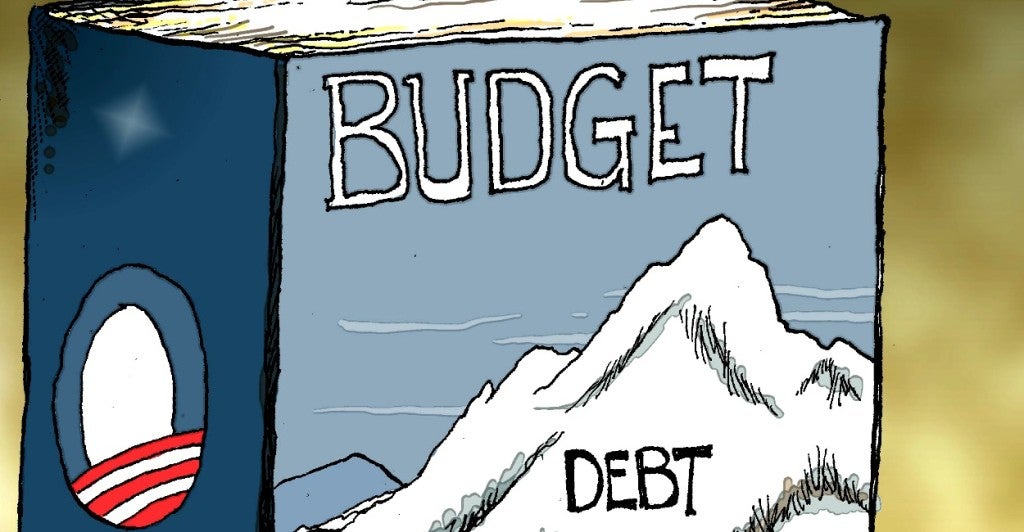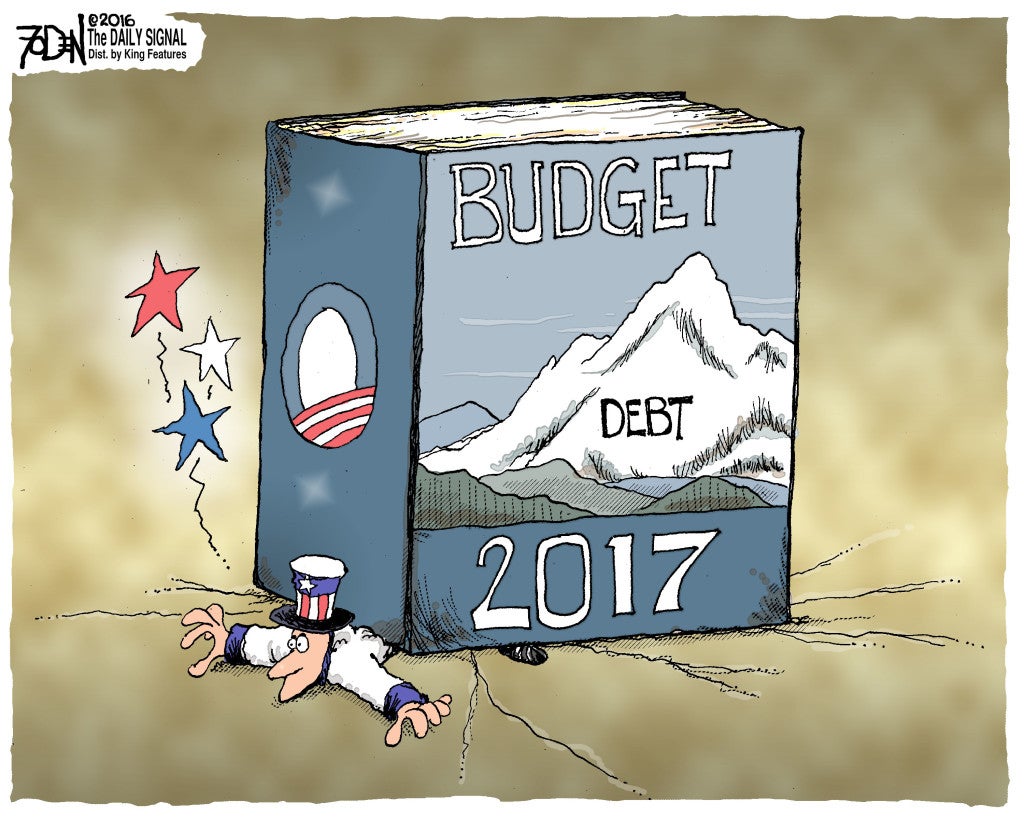Kim Holmes wrote earlier this week on the president’s budget plan.
President Barack Obama’s $4.1 trillion budget plan is out. Alas, it’s more of the same. It calls for raising taxes but does nothing to rein in the nation’s out-of-control debt, which is estimated to exceed $19 trillion.
You would think that Obama knew better. The dangers are plain to see. Without some check on social entitlement and other government spending, a reckoning of our massive debt will surely occur. Whether it happens with a bang—like a big collapse of the economy—or unfolds in a long, painful whimper, as in a slow-burn decline in our standard of living, who knows? But one thing should be certain. That day will come, and when it does, all the economic and social stability that anchors our prosperity, not to mention our constitutional form of government, could crack like a thawing river in springtime.
So there’s a lot at stake. In fact, everything is at stake.
Which raises the most fundamental question of all: What is it about our government, and even about some of us, that makes it so nearly impossible to restrain our spending habits?
The easy answers are well known, but they don’t seem to help much. Yes, we know that a lot of people who depend on government want more of it. We also know that even some who claim to despise government in theory are accepting of it well enough in practice, protesting, for example, when their favorite program is put on the chopping block. There is enough hypocrisy to go around, so I suppose some humility is in order in facing up to the truth.
>>> Pre-Order Kim Holmes’ New Book “The Closing of the Liberal Mind: How Groupthink and Intolerance Define the Left”
But what is that truth? We live in an age that suffers from delusions of governmental grandeur. It is often assumed that there is no problem that government cannot solve, provided there is enough will and money to tackle it. That is, after all, one of the central premises of Obama’s presidency.
We live in an age that suffers from delusions of governmental grandeur.
I’m not speaking here of constructing rockets to go to the moon, or of building mighty armed forces to defeat the Nazis. I’m referring instead to the countless wasteful programs that arise from nothing less than the spirit of profligacy. Apparently, the thinking goes, we are so rich that we can afford pretty much anything we want. How else could you explain a federal program that spends $2.6 million on how to train Chinese prostitutes to drink more responsibly on the job, or to fork out a portion of a $325,000 National Science Foundation grant to build a robot squirrel to find out why rattlesnakes rarely attack squirrels that wag their tails?
And then there is that old standby—the bottomless well of government compassion. It is from this mighty fountain that hundreds of thousands of government programs spring forth not only to ease every person’s discomfort, but to eliminate all the nasty inequalities of the human condition. From bullying to income inequality to rectifying the temperature of the Earth’s atmosphere—you name it—there is no condition government can’t at least “address,” which of course is not the same thing as solving it.
There is only one remedy to this kind of utopian thinking. We must return to understanding that there are limits to what government can and should do. The default question should not be what should the government do if it could, but what should the government do only if it can and if it must?
As I explain in my forthcoming book, “The Closing of the Liberal Mind: How Groupthink and Intolerance Define the Left,” it is OK to dream, but dreaming should not be an excuse for fantasizing.
If we ever hope to solve our problems, we must at least return to a semblance of reality-based thought. All the fantastical thinking about unlimited federal budgets … would have to disappear. So, too, will simplistic government solutions for the most pressing problems of our lives[.] […] What is not contestable is that we cannot continue on our current course without destroying the American system as we know it. Unless we find it within ourselves to rediscover the age-old American wisdom about the limits of government, including a deep and abiding respect for the Bill of Rights, we will surely lose a lot more than our wisdom. We will lose our ability to govern ourselves.

